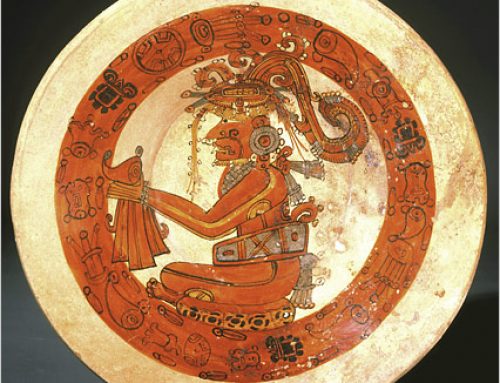
Hubris definition: Aegisthus murdering Agamemnon
Definition of hubris
Hubris (HOO-briss) is a Greek word which we translate into English as “pride” or “arrogance.” (You can also spell it hybris).
What is Xenia?
Nomos and physis
More Greek philosophy
All our ancient Greece articles
Its original meaning in Greek was to hit something. But hubris means thinking you are better than you really are, as in the expression “Pride goes before a fall.” It especially means thinking you are better than the gods: gods hate that! You always come to a bad end.
Greek gods
Greek religion

Hubris definition: Apollo and Artemis kill Niobe’s children (Athens, 400s BC)
Myths and stories about hubris
Many myths warn people about the dangers of hubris, including the story of Arachne, the story of Agamemnon, and the story of Niobe. Hubris also plays a big part in the Iliad.
Who was Arachne?
Agamemnon
Niobe and her children
Achilles and the Iliad
Some real-life stories where the Greeks thought hubris was to blame are Herodotus‘ story of Pisistratus the tyrant of Athens, and Herodotus‘ story of Xerxes in the Second Persian War.
Who was Pisistratus?
What about Xerxes?
Is hubris just a Greek thing?
Well, people didn’t think about hubris in exactly the same way in other cultures – in India, or China, or Africa. Still, you might compare these Greek stories with this Indian story about pride, or Chapter 9 of the Chinese Tao.
Learn by doing: find examples of hubris in modern television shows
More about Niobe
Bibliography and further reading about hubris:
Law, Violence, and Community in Classical Athens, by David Cohen (P. A. Cartledge and Peter Garnsey are the editors) (1995). Cohen shows how agon (fighting) was the main idea behind the Greek court system.
Greek Ethics (Key Texts), by Pamela M. Huby (1998). Pretty easy to read, for an adult’s book.
Philosophy and Science in Ancient Greece: The Pursuit of Knowledge, by Don Nardo (2004). For teenagers. Don Nardo has written many books for young people about the ancient Greeks.




